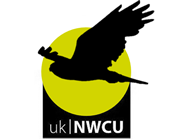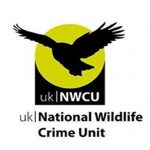One year on the NWCU website has gone from strength to strength. It explains what wildlife crime is, details the role of the unit, how tackling different wildlife crime across the UK is prioritised and how users can report wildlife crime. It highlights the sort of information users can provide to help combat such crime, either by contacting their local Police Force or CRIMESTOPPERS. It gives users access, via links, to the latest media releases relating to wildlife crime investigations and prosecutions involving the NWCU, the Police and other UK law enforcement agencies engaged in the fight against wildlife crime.
In its first year the website has had nearly 15,500 users from all parts of the world visiting it on more than 22,000 occasions. Content has been updated and improved regularly and key stories such as the launch of Project TRESPASS in October 2013 (a coordinated approach to tackle poaching across England and Wales) and the theft of Tamarin Monkeys from Blackpool Zoo in April 2014 reflect the huge public interest in wildlife crime issues.
The unit head, Detective Inspector Nevin Hunter reflecting on the websites’ first year says,
“In 2013 the Environmental Audit Committee (EAC) rightly highlighted the need for the NWCU to have an effective website. We worked closely with our website designer John Clark from Artificial Art to develop a site that met their expectations and that of the wider public. We hope we have delivered a website that offers the necessary mix of information and the latest updates on wildlife crime issues from across the United Kingdom and globally. It represents the public face of the unit and shows that the small team we have at the NWCU works tirelessly to support colleagues across the law enforcement agencies, working with governmental and non-governmental agencies.
We have continued to support prosecutions of all types, but there is always more to do. The unit has provided support globally on the investigation of the illegal trade in endangered species and to the UK Governments’ approach to raising the profile of the threats posed to Rhino, Tigers and Elephants. Increasingly though, it is a threat at home that is concerning us – the coordinated and sustained persecution of native birds of prey. We cannot allow this to continue and are working with partners from shooting and conservation agencies we aim to put offenders on the back foot and, where possible, behind bars. The public can assist us by using their eyes and ears, reporting suspicious activities to their local Police Wildlife Crime Officers or via CRIMESTOPPERS.
The NWCU has built an international reputation for excellence in the investigation of wildlife crime. We aim to maintain this and to keep the public informed as best as possible showing what we do through our website over the coming years”.





